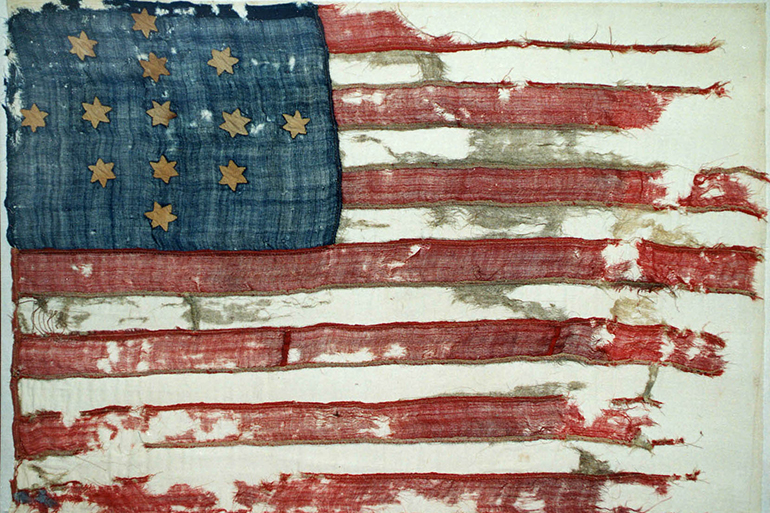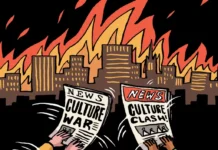Thomas Paine’s Common Sense, the defining inspiration for the creation of this pamphlet, Human Sense, was written to put before the Common Man a simple question: Should the American colonists reconcile their differences with the King of England and his Parliament, or separate from them and establish for themselves a sovereign independent nation.
That publication consisted of an introduction, four sections, and an appendix. The first two parts focused on the origins and design of government and on matters of monarchy and hereditary succession. The second two parts made the case to the American colonists that they were well enough prepared for Independence from Britain, first by offering his observations on the present state of American Affairs and then his thoughts on America’s ability to be successful should she decide to go her own way.
To honor Paine’s legacy and out of my most profound respect for his work two and a half centuries ago, I followed his basic approach in both the construction and the order and flow, even down to matching the original word count for each section as closely as possible. My one significant deviation from his template was to merge the first two parts into one and title it ” On the Governing” and merge the second two parts into one and title it “On the “Governed” precisely because, two and a half centuries later, the Common Man once more finds himself and his natural rights being assaulted and abused by his ruling Authority.
Sadly, however, the opposing sides of this conflict in 2024 are the American citizens Paine assured us would be free from tyranny and oppression should we commit ourselves to a new governing system, and that governing system we ultimately chose that has since broken its promise to never again “reduce them under absolute Despotism.”
Where Thomas Paine’s Close was an appendix, the Close to Human Sense, which I have titled Closing Arguments, focuses on something Paine had assured the Colonists would be the most significant benefit to them should they separate from Britain. Something he could have had no way to anticipate in his day, however, has become the very thing in 2024 that puts the entire global population at far greater risk than anything he could have imagined in 1776.
Making a compelling case that independence from Britain would open trade opportunities with other countries the American colonies could not access directly, being under British rule, Paine made this observation in his appendix:
“In short, Independance is the only Bond that can tye and keep us together. We shall then see our object, and our ears will be legally shut against the schemes of an intriguing, as well, as a cruel enemy. We shall then too, be on a proper footing, to treat with Britain; for there is reason to conclude, that the pride of that court, will be less hurt by treating with the American states for terms of peace, than with those, whom she denominates, “rebellious subjects,” for terms of accommodation. It is our delaying it that encourages her to hope for conquest, and our backwardness tends only to prolong the war. As we have, without any good effect therefrom, withheld our trade to obtain a redress of our grievances, let us now try the alternative, by independantly redressing them ourselves, and then offering to open the trade. The mercantile and reasonable part in England, will be still with us; because, peace with trade, is preferable to war without it. And if this offer be not accepted, other courts may be applied to.”
It is my contention, having committed a great many words in the previous sheets to the nature of governing systems and the natural conflict between these and the social constructs forced to live within those systems, that where the act of conducting business and commerce within the confines of a Sovereign Nation has its challenges, conflicts, and potential for acrimony, conducting trade and commerce between nations brings with it an entirely different set of problems. In the 2024 modern era, it is difficult enough to protect the Sovereign Individual from the potential for ruling authorities to be corrupted by greed at home. It is another thing altogether to try to restrain them wherever they are conducting trade and commerce in the International arena. Considering how international trade and commerce are currently being conducted at the expense of the Sovereign Individual, I offer a historical review of how we got here.
Returning one last time to our ancient ancestors in Mesopotamia and around the world at that time in history, remember that trade played a significant role in advancing our species and continuously improving the quality of life for members of the expanding number of sedentary communities. In the simplest of terms, people made things that others needed, and upon reaching agreeable terms, each would sell to or buy from the other according to need. In the earliest days, this commerce took place within the communities, but over time, with evolving delivery methods, it began to spread to other communities.
It wouldn’t be until the beginning of monarchies and kingdoms that layers of intervention would be inserted into the transactional dynamics of the relationship between buyers and sellers, eventually tainted by hostility and greed. Where it had initially been of mutual benefit to both sides of a transaction, each providing the other a service of sorts, it became both parties having to serve an extra master (ruling Authority) through levies and taxes. It can be argued that once trade began with other countries, with sea travel increasingly becoming safer and more reliable, the idea of “globalization” would start to take shape.
A historical inspection of the origins and evolution of globalization is necessary to understand its effects, not only on the economies of Sovereign Nations or the benefits it delivers to the wealthiest few around the world, but most importantly, the extent to which it effectively strips away the natural and human rights of the sovereign individual; a one planet economy surely benefits the rich and powerful, but it cannot peaceably coexist with, nor abide, self-determinant individual sovereignty, free expression, and richly diverse communal faith systems.
Although it is widely accepted that the term “globalization” was first coined by German-born American economist Theodore Levitt in a 1983 article titled “The Globalization of Markets,” some argue it started with the first Industrial Revolution. Others have suggested its practice, before it had a name, began much earlier with something referred to as the “Silk Road.” History tells us that the Silk Road was a trade route network connecting Asia, Europe, and the Mediterranean for around 1,400 years. It was established in 130 B.C. when the Han Dynasty in China opened trade with the West and remained in use until 1453, when the Ottoman Empire closed it.
For my purposes here, giving all due deference to those who came before Levitt, the beginning stages of globalization in the modern era, the so-called new age globalization scheme, begins with the first Industrial Revolution. According to Britannica, the timing of its modern beginnings is more precise in 1870 because “some scholars date it more specifically to about 1870 when exports became a much more significant share of some countries’ gross domestic product (GDP). Its continued escalation is largely attributable to the development of new technologies—particularly in the fields of communication and transportation—and to the adoption of liberal trade policies by countries around the world.”
A wealth of information is available on the topic of the first Industrial Revolution, and readers are invited to look more deeply into this subject. Being only the first of what many claim are now four industrial revolutions, the most important takeaway from this time in world history is that the world was transformed most fundamentally by the “change from an agrarian and handicraft economy to one dominated by industry and machine manufacturing.” It wasn’t just the improved efficiency, the dramatic increase in productivity, or practically overnight wealth creation that was notable during this period. Also displaced was the knowledge, work ethic, skills, wisdom, and experience that had been handed down through generations of skilled craftsmanship, and generations’ entire ways of life were brushed aside and all but forgotten.
Although it can be fairly said that workers’ incomes rose, helping improve the quality of their lives, we know work conditions were harsh and dangerous. Though rarely said out loud, we also know that the wealth gap between Company ownership and the people actually doing the physical labor began to widen and has only gotten worse in the century and a half since industrialization and globalization kicked into high gear. Not long after that, with the Advent of steel manufacturing, the expansion of a railroad system, and the early use of electricity for things like the telegraph, the Second Industrial Revolution quickly followed.
Sticking with Britannica, the Second Industrial Revolution began in the late 19th and early 20th centuries. Its distinguishing characteristics include the new exploitation “of many natural and synthetic resources not hitherto utilized: lighter metals, rare earths, new alloys, synthetic products such as plastics, and new energy sources. Combined with these were developments in machines, tools, and computers that gave rise to the automatic factory.” Readers should keep in mind that the generally accepted end of the Second Industrial Revolution is closely aligned with the beginning of World War 1.
World War I started in 1914, a year after Henry Ford began his first mass production assembly line operations. This so-called Second Industrial Revolution brought with it a great deal of innovation and creativity, along with continued improvement in the quality of life for workers, but the crash of the stock market in October of ’29 was a big blow, not only to the stock market but to significant numbers of industry all around the world.
According to many, as early as 1947, the post-World War II era would change everything for businesses, workers, their families, their ways of life, and the tidal wave of wealth creation that came along with the transition to the Third Industrial Revolution. It would be the invention of the transistor and optical amplifier that set into motion previously unimaginable technological advancements that soon enough led to a digital world and the earliest versions of computers and the internet.
As of this date in 2024, it is generally accepted that we are currently in the throes of what is being called the Industrial Revolution 4.0. A lot has changed and evolved between 1950 and 2024. High-speed internet, global interconnectivity, information technology, data collection and sharing, advancements in aerospace technology, and artificial intelligence have changed the world. Additionally, with advancements in international travel, transportation of goods, and international trade, nearly 200 independent nations worldwide are being reached.
Preceding some of these advancements, the United Nations came into being in 1945. Many other international collaboratives, such as the International Monetary Fund, the World Bank, the World Trade Organization, the World Health Organization, the World Economic Forum, and the UN Intergovernmental Panel on Climate Change (IPCC), have come along since. The number of these continues to rise faster than many of us can keep up with, yet, for all of this effort to make the world a better place for everyone living in it, can we say that the world is universally better off for it?
According to Google’s search AI bot, “there are 195 sovereign nations in the world,” and each of them is a member of the United Nations. A quick review of the areas of focus at the United Nations and their core mission statement tells us that they are committed to “Maintain international peace and security, Protect human rights, Deliver humanitarian aid, Support sustainable development and climate action, and Uphold international law:” Further, “The UN’s primary mandate is to maintain international peace and security. Its vision statement is “Peace, prosperity, progress, and sustainability.” Bear in mind that the current world population hovers around 8 billion people, each of whom is, allegedly, collectively represented at the UN, where international collaboration is supposed to be working toward achieving these goals.
Can we honestly say that they are making good on their promises? That there is even one child being victimized, bought and sold to serve sexual slavery, or be subjected to a life of slave labor makes clear they are failing.
According to one source, as many as 3 billion of them are drinking water contaminated with chemicals and waste. Another source tells us that world hunger is at an all-time high. Armed conflict is taking place on multiple continents, and families are being displaced and scattered around the globe, driving a migration crisis that has not been seen in decades. Slavery is taking place in several countries. Human trafficking of women and children, some sold into sexual slavery, is becoming an epidemic. While the causes for these Global issues are many and varied, and no single cause can be blamed, it is fair to suggest that Global collaborations are not producing their intended effects.
One Global collaboration, in particular, has come to the fore in recent years and deserves closer consideration because of its activities and the effects some of these are having on the lives of sovereign individuals all around the world. This is especially important because of its impact on the world and its growing influence over the governance and affairs of a handful of sovereign Nations that have signed on to join its efforts.
Two decades after the transistor hit the world stage and 12 years before Levitt gave us the expression “globalization,” Klaus Schwab founded the World Economic Forum (known initially as the”European Management Forum” but renamed in 1987) in Davos, Switzerland. Britannica tells us that the WEF is an “international organization that convenes an annual winter conference, traditionally in Davos, for the discussion of global commerce, economic development, political concerns, and important social issues. Some of the world’s most prominent business leaders, politicians, policymakers, scholars, philanthropists, trade unionists, and representatives of nongovernmental organizations (NGOs) attend the meetings. Headquarters are in Cologny, near Geneva.”
The World Economic Forum’s “Mission Statement” states, as of 2024, that “The World Economic Forum is the International Organization for Public-Private Cooperation. It provides a global, impartial and not-for-profit platform for meaningful connection between stakeholders to establish trust, and build initiatives for cooperation and progress.
In a world marked by complex challenges, the World Economic Forum engages political, business, academic, civil society and other leaders of society to shape global, regional and industry agendas. Established in 1971 as a not-for-profit foundation, it is independent, impartial and not tied to any special interests, upholding the highest standards of governance and moral and intellectual integrity.
At the heart of our mission of improving the state of the world lies the belief in the power of human ingenuity, entrepreneurship, innovation and cooperation. We recognize the need for a forum fostering rigorous and respectful dialogue between and among leaders with different beliefs and viewpoints, where diversity of thought is respected, and all voices can be heard. Achieving this mission is made possible by all our stakeholders, who come together to find common ground and seize opportunities for positive change.
The Forum’s commitment on facilitating progress on systemic challenges is taken forward through its 10 Centres, each applying the institution’s unique combination of impact methods to drive holistic efforts. The Centres build communities of purpose essential to addressing large-scale global challenges. Guided by these communities, our centre teams convert ambition into focused action, through structured multi-year initiatives and insight generation.
Together, we continue to strive for a better world, where cooperation and trust lead to lasting progress.”
The List of member nations is quite comprehensive. Some of the most highly respected thought leaders around the world contribute to the work of the WEF, and much of the world is, directly or indirectly, impacted by what comes out of its efforts. Admittedly not smart enough to judge or cast aspersions, notable is the absence of ordinary, everyday people- the rank and file “man on the streets” or any contributions from them to the more significant efforts of the Forum. Interestingly, the list of thought leaders reads like a veritable who’s who of wealthy, powerful, and famously accomplished influential people. That they are so far removed, insulated, and isolated from 99.8% of the world’s population of 8 billion makes it difficult to think that they know very much at all about the difficulties and hardships each of the rest of us is made to endure on a daily basis. It is curious to watch the smallest percentage of the world population come together to solve problems about which they know very little if anything at all.
To better understand all the ways that politicians, thought leaders and so many other types and layers of actors currently working outside of public purview with no personal accountability, I suggest readers consider a few internet searches purely for personal edification. Doing so will yield several pieces of information worthy of closer inspection, so that readers might better understand the nature of the eternal conflict between the Governing and the Governed.
First, the WEF employs approximately 800 people worldwide. The United States government employs nearly 3 million people, and there are known to be almost 12 million more people working for an NGO. Reminding readers once more of the previous discussion in part 1 of this pamphlet on the matter of the so-called “third rail” and all the things that take place there outside of public purview (and intervention), this is an excellent place to mention OS Guinness one last time, and his assertion that an Aristocracy, once corrupted, becomes an Oligarchy.
Guinness referred to “Aristocracy” as the rule of “the Excellent few,” and if the Common Man soberly looks out at the world around us today, reflects seriously on the work of the countless global collaboratives and considers whether or not their sovereign individual lives have been made better, or if – perhaps – it has been the excellent few that has improved their own wealth, power, and station in life, and it has come at the greatest expense to the least among us.
Every member of our species, from the wealthiest and most powerful to the poorest and least able, gets up every morning and sets about the business of whatever they do. Some feed their livestock, others collect trash, collect bills, perform surgeries, right computer code, stand in front of a classroom teaching others, attend Congressional hearings, and so on ad infinitum. We do these things to serve whatever purpose we have designed for ourselves and- in whatever form – receive something in return for our labor. We use our compensation to support ourselves, our families and loved ones, or those who depend on us for survival. It can be argued that global collaboratives exist singly because of our labors and the trials and tribulations that accompany them. If everyone’s life were perfect, no self-appointed hierarchy of man would be needed. I’m reminded here of Thomas Paine’s observation that, because we have a ruling Authority – or several – “we provide the means by which we suffer.”
Looking back at Schwab and the WEF one last time, it’s important that readers understand the gravity of the work being done at our collective expense through this and all the other global collaboratives. With the advent of artificial intelligence came something known as “Big Data.” In layman’s terms, what this means is that every aspect of our lives is tracked, shared, monetized, and ultimately (so frequently indirectly) used to constrain or predetermine the allowable exercise of our natural rights to freedom and self-determination.
Somewhere “out there in the internet world,” data is being collected and shared about where we go, what we do, what we eat, our fashion choices, the websites we visit, the things we buy, the people we spend time with in person or on the phone, and literally every single aspect of our lives.
Despite his not having said there were any plans to do so, Schwab did tell an interviewer that we were not far away from having the technology to eliminate voting, for example, because – knowing as much about us as this technology does – it could soon enough determine who we would vote for, and save us the trouble of having to go do so in person. We are routinely assured otherwise, but the ability to hold our personal choices against us nonetheless exists; one need look no further than the global COVID response and the extent to which ruling authorities seized upon the opportunity to constrain our travel, mobility, freedom to work, go to school or church, and a great many other constraints on our natural rights to self-determination.
Collaborative collectives such as the European Union, for example, are experimenting with digital passports and vaccine passports and the ability to blacklist, de-bank, ban from social media, or otherwise isolate, ostracize, and remove dissent from the national and international conversation. We can trust them, they tell us, because they can better see the bigger picture and know what needs to be done for the greater good. I trust you, dear reader, to make your own determinations on the veracity of these claims upon further inquiry.
Bringing this Pamphlet to a close, remembering the evolution of faith and belief systems, the eternal conflict between those proclaiming a natural right to rule and those proclaiming a natural right to be free, each holding steadfastly to the righteousness of their claims, can be reasonably considered the single greatest dispute of humankind that can never be resolved.
From the day Abraham proclaimed, five Millenia ago, that there was only one God and that this God was not of this world, every imaginable effort has been made by each side to separate the other from what they are so sure is true. The existence of a God, or otherworldly essence by whatever name, can never be physically proved or disproved. At the same time, there exist many millennia worth of evidence that those who have attempted to assume the role inevitably and without fail never live up to the promise.
What I have written here makes no attempt to resolve the conflict. I have merely offered Thomas Paine’s Common Sense in modernized form, picking up where he left off two and a half centuries ago. It includes the highlights of everything that has happened around the world—both good and bad—to our species, with an eye toward what lies ahead given our species’ trajectory between 1776 and 2024.
I offer for readers’ consideration a quote from someone quite well-known, deeply admired, and highly respected by politicians, thought leaders, the whole of the WEF collaborative, and pretty much anyone who can get him in front of a microphone. Yuval Noah Harari, bestselling author of “Sapiens: A Brief History of Humankind”. He is known as a historian and philosopher and is quoted in this book as having said this:
“Yet none of these things [laws, justice, human rights, money] exists outside the stories that people invent and tell one another. There are no gods in the universe, no nations, no money, no human rights, no laws, and no justice outside the common imagination of human beings. People easily understand that ‘primitives’ cement their social order by believing in ghosts and spirits and gathering each full moon to dance together around the campfire. What we fail to appreciate is that our modern institutions function on exactly the same basis. Take for example the world of business corporations. Modern business-people and lawyers are, in fact, powerful sorcerers. The principal difference between them and tribal shamans is that modern lawyers tell far stranger stories.”
Many people in positions of power embrace what Harari says here and, at least until the last vestiges of our sovereign individual rights to obey the fundamental tenets of natural law are taken from us, each of us is free to form our own opinion on this observation. I share it here because I suggest it is emblematic of the modern struggle between the Governing and the Governed. It shines a bright light on the nihilistic underpinnings of those, ironically leading the charge toward “making the world a better place.” missing from the promise to make the world a better place, however, is the answer to the question which is “better for whom” and what, precisely, does “better” look like, feel like, and cost?
While many hold to the idea of a one-world system of governance, there are also those who fundamentally disagree. It is a right, by Nature, that each of us has an opinion, can express it, and can openly debate the various issues publicly in an open forum—at least there used to be.
The America Paine proposed to the Common Man in 1776 was realized. The America that Lincoln stood back on its feet and the pre-globalization America no longer exists. What remains, however, is the “Idea” of America, the dream of it dreamt by the earliest laborers to begin its construction, and the Prayers and Hopes for what it might become for the generations that would come after its earliest beginnings.
For now, America remains a Sovereign Independent Nation, along with each of the other nearly 200 Sovereign Independent Nations around the world. While the governing systems of each of these Nations are varied, and the freedom of their respective peoples to obey natural law and exercise their natural rights to liberty and self-determination might differ from ours, what remains as accurate today as it was 300,000 years ago when we first stood upright in Africa, is that our species continues to exist precisely because of our Primal need to survive, independent of ruling Authorities making that increasingly complex so that we might continue to reproduce in the name of sustaining and continuing the species.
It is a lofty goal for those who envision a globalized economy, culture, and society, but as I have reported here, more harm than good has come, at least for now, from the efforts to achieve that goal. The sovereign individual must contend with its local and Federal governing system pragmatically on a daily basis in order to comply with whatever rules and restrictions are put upon them by their ruling Authority within their own Homeland.
At the same time, the sovereign individual who takes their single most important job seriously, which is trying to sustain and protect, educate, and inspire their children, is routinely interfered with by their ruling Authority, making it nearly impossible to impart their better hard-won wisdom to them as they fight to exercise their parental rights that were not granted by governments but affirmed by the laws of nature.
The future of the planet, and each of the nations of which Earth is comprised, rests solely in the hands, not of global collaborations, not of national ruling Authorities, and certainly not with educators and thought leaders and modern-day aristocrats, but in the hands of the children just being born today as well as the generations yet to come.
Should a child be allowed birth, in this day and age, what becomes of him or her is wholly dependent on how he or she is loved and nurtured, educated and protected. Children will grow to become whatever they are allowed—or not—to become, according to the environment in which they are raised. Throughout the entirety of our existence, until recent decades, it has always been the job of parents and families to prepare their posterity for the demands and expectations of the community they would enter once they reached adulthood. That debate rages in the modern era as to what “adulthood” even means anymore makes clear there are plenty of problems to solve right here at home before getting the problems of others solved over which we can never have any real control.
In today’s modern “Global” context, confronted by the ever-shifting sands of truth, reality, right, wrong, politically correct, and socioculturally acceptable. The work of adequately preparing a child to successfully navigate the inconsistencies of the modern world has made this job more complicated than ever before. Parents and families can do no more than pass along their wisdom and experience so that the child might have a fighting chance to help make the world a better place. The best chance of succeeding in this effort begins by removing the ruling Authority from the homes in which we raise our children.
We, the People living today, are responsible for the current state of affairs within each of our Nations and between each of the other Nations worldwide. The last several Generations, troubled, conflicted, and self-destructive, have imperiled the long-term future of our species. In our present Collective lifetimes, the challenges that lie ahead will not be resolved, but the future, always in the hands of those yet to come, will be determined by the world’s decisions we make today. The seeds we plant in the hearts and minds of the children being born in 2024 will yield a world our great grandchildren’s great-grandchildren will be born into. What remains is the question each of us must ask ourselves, which is, “What do we want their future to look like when it is their time to be born?”
In the appendix of Thomas Paine’s Common Sense, making his case to the colonists that “Independance is the only Bond that can tye and keep us together”, I contend that this is no less true today than it was two and a half centuries ago when he first said it. Even though the Independence Paine was talking about was the separation from Britain, and the Independence this pamphlet is attempting to encourage the Sovereign American Nation to consider as it relates to the growing efforts of global collaborations to interfere in our national affairs, the seriousness of the situation is no different. As Paine rightly pointed out at the time, fair commerce and trade between nations truly is the tie that binds Sovereign Individuals within each Sovereign Nation in pursuit of working together to provide goods and services and making them available to other Sovereign Nations and their peoples in a mutually beneficial way.
As he suggested in his introduction, “The cause of America is in a great measure the cause of all mankind,” and in every nation where freedom and self-determination have been tried, the world has been made a little better. To be constrained one Nation from another by a global collaborative intermediary whose interests aren’t first served at the local level within Nations gives the appearance to each of the Sovereign Nations of being made to bend a knee at the boot of an “Aristocracy, the excellent few corrupted into an Oligarchy.” This is anathema to everything we understand about Natural Law.
The question, then, that I put before the American people and the Sovereign Individuals who inhabit the rest of the planet is simply this: Should we allow our ruling Authorities to relinquish our National Sovereignties and bend a knee at the boot of a global ruling Authority, or should we reclaim our Covenants with them to bend a knee to our demands for freedom and self-determination in obedience to natural law? Consider this as you decide: The higher a pyramid’s peak becomes, the less likely its builders will ever see what is taking place at its top.
~ F I N I S. ~





